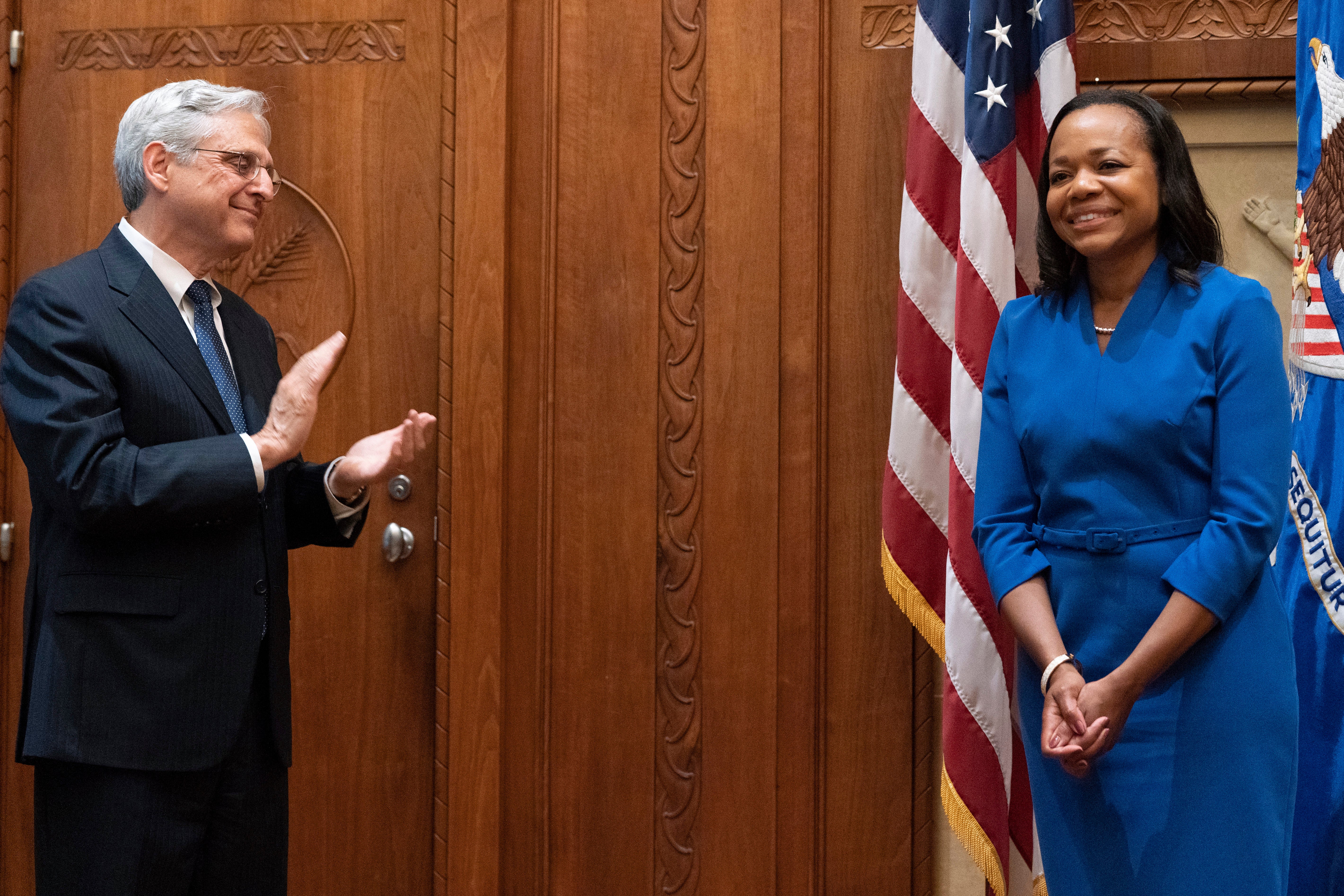Justice Department stepping up enforcement of hate crimes
The Justice Department is stepping up its enforcement of hate crimes and other bias-related incidents, furthering a promise by Attorney General Merrick Garland to focus on civil rights violations

The Justice Department is stepping up its enforcement of hate crimes and other bias-related incidents, furthering a promise by Attorney General Merrick Garland to focus on civil rights violations.
Assistant Attorney General Kristen Clarke, recently sworn in and the first Black woman to hold the position, said the effort has led to indictments in multiple cases over the past six months. But the number of hate crimes has grown: In November, the FBI said they'd reached the highest level in more than a decade.
“Hate crimes are especially pernicious because they harm targeted individuals and the entire community to which the individual belongs,” she said in a statement to The Associated Press. “No community should live in fear because of who they are, where they are from, or what they believe, and it is our goal to make that a reality.”
The statement comes during the first days of Pride Month, a celebration of LGBTQ rights, and as the Justice Department has leveled a series of civil rights charges, including against three white men accused of killing Ahmaud Arbery, who was Black, in Georgia. It has also opened several investigations into policing practices at departments around the country.
A Texas man pleaded guilty this week to a federal hate crime charge for a scheme to target gay men, using the online hookup site Grindr to lure men to a vacant apartment and elsewhere in Dallas in December 2017. The man, Daniel Jenkins, pleaded guilty to conspiracy to commit hate crimes, kidnapping, carjacking and firearms charges. Jenkins and others held the victims at gunpoint, stole their money and cars, taunted them and made the victims drive to ATMs to withdraw cash from their bank accounts. As part of a plea deal, he faces up to 26 years in prison.
Three other men, Michael Atkinson, Daryl Henry and Pablo Ceniceros-Deleon, have already pleaded guilty to federal charges in the case and are scheduled to be sentenced in June.
And a Louisiana man was indicted in March in connection with what authorities said was a plot to kidnap men using Grindr and then dismember and eat them. The 19-year-old from Lafayette specifically targeted the men because of their gender and sexual orientation and wanted to keep the victims’ bodies as trophies and mementos, the Justice Department said.
In Montana, a man was charged with federal hate crimes and gun charges after prosecutors said he drove around with an AK-47 rifle targeting gay men and lesbian women. The 44-year-old man fired into one home at least seven times, prosecutors said, and then continued driving around the town of Basin, Montana. Prosecutors said he proclaimed an intent to “get rid of the sickness” of gay and lesbian people.
There were 51 hate crime murders in 2019, which includes 22 people who were killed in a shooting that targeted Mexicans at a Walmart in the border city of El Paso, Texas, the FBI report found. The suspect in that August 2019 shooting, which left two dozen other people injured, was charged with both state and federal crimes in what authorities said was an attempt to scare Hispanics into leaving the United States.
There were 7,314 hate crimes reported, up from 7,120 the year before — and approaching the 7,783 from 2008. The FBI’s annual report defines hate crimes as those motivated by bias based on a person’s race, religion or sexual orientation, among other categories.
Some of the 2019 increases may be the result of better reporting by police departments, but law enforcement officials and advocacy groups don’t doubt that hate crimes are on the rise.
Bookmark popover
Removed from bookmarks